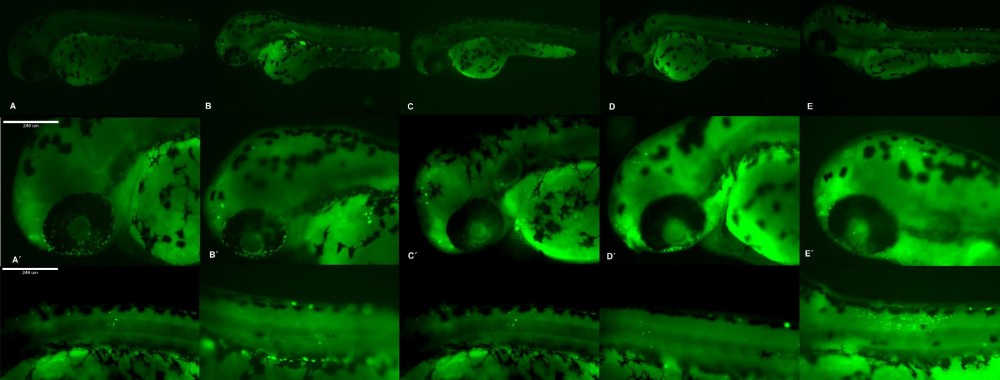Neurotoxicology Of Environmental Pollutants

Neurotoxicology Of Environmental Pollutants
(Project Manager: Ulises Gregorio Pacheco Bardullas, Ph.D)
Transgenerational epigenetic effects of environmental pollutants on the nervous system: In recent years, the number of studies linking epigenetic modifications to genomic DNA with the development of some diseases has increased. These modifications can be the result of exposure to environmental pollutants during critical stages of development. These changes in the epigenome can be transmitted and affect subsequent generations that are not in direct connection with the pollutant in what appears to be a transgenerational toxicity phenomenon.
In our laboratory we address this problem by taking advantage of the relative ease of obtaining generations with the zebrafish model from an integrative perspective, studying the consequences of epigenetic modifications at the molecular level and their possible alterations at the behavioral level.
Effect of exposure to pesticides on the nervous system from a developmental perspective: Currently there is concern about whether the toxins found in the environment can produce alterations in development, due to the vulnerability of biological systems during the gestation and growth period. In particular, the nervous system has been reported as a frequent target of pesticides, compromising their functioning and promoting susceptibility to the development of neurodegenerative diseases, such as Parkinson’s disease. Studies in animal models have shown that pesticides such as atrazine herbicide produce a dramatic decrease in dopaminergic neurons and dopamine content in the substancia nigra. Both elements are relevant pathophysiological signs that lead to Parkinson’s.
















